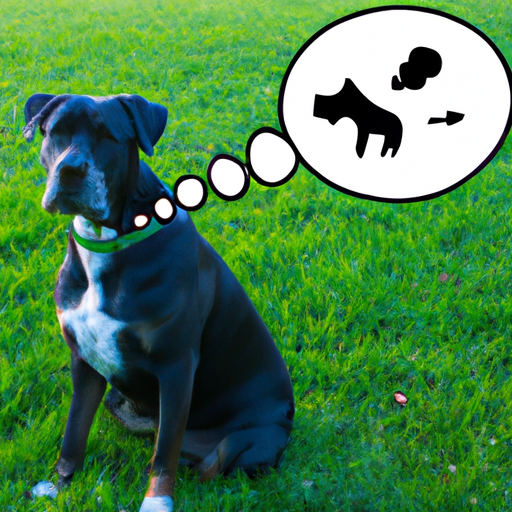It’s a sight familiar to many dog owners: your beloved pet munching on a patch of grass, only to regurgitate it shortly afterward. This phenomenon, known as Pica, has left many puzzled, concerned, and curious about their pets’ behavior. This article delves into this issue comprehensively, highlighting the reasons dogs eat grass and subsequently vomit, its potential health implications, and how to manage this behavior.
- Table of contents
- Understanding Pica in Dogs
- Reasons Dogs Eat Grass
- Health Implications
- Managing Grass Eating Behavior
-
Frequently Asked Questions
-
Key Takeaways
- Dogs eating grass and throwing up is a common behavior known as ‘Pica.’
- There are several reasons why dogs eat grass, from nutritional deficiencies to boredom.
- This behavior can have health implications, but it’s generally harmless.
- You can manage this behavior through training, dietary modifications, and vet consultation.
Understanding Pica in Dogs
Pica, as defined by the American Kennel Club, is the habitual eating of non-food items. Grass, being a commonly available non-food item in many dogs’ environments, often becomes the substance of choice. It’s important to note that this behavior is not exclusive to dogs; many animals exhibit pica when they consume substances not typically part of their diet. If you’ve noticed this behavior in your dog, it might be useful to delve deeper into understanding the reasons behind it.
Reasons Dogs Eat Grass
Dogs eat grass for several reasons, and these can range from physical to psychological. Here are a few possible causes:
- Nutritional Deficiency: Some experts believe that dogs eat grass to make up for a lack of fiber or other nutrients in their diet.
- Gastrointestinal Upset: Your dog might be eating grass to induce vomiting and relieve discomfort from a stomach upset.
- Boredom or Anxiety: Just like humans, dogs might turn to peculiar habits when they’re bored or anxious, and grass-eating could be one of these.
- Instinct: Dogs descended from wolves, who are known to eat grass occasionally. This behavior might simply be a throwback to their wild ancestors.
This article from OneTopDog provides more insight into why your dog might be eating grass.
| Reasons | Details |
|---|---|
| Nutritional Deficiency | Lack of fiber or other nutrients |
| Gastrointestinal Upset | Relieve discomfort from a stomach upset |
| Boredom or Anxiety | Peculiar habits due to boredom or anxiety |
| Instinct | A throwback to their wild ancestors |
Health Implications
Generally, occasional grass eating and regurgitation is harmless. However, if the behavior becomes frequent or is accompanied by other signs of illness, it’s essential to consult a vet. Pesticides or other chemicals on the grass could harm your dog, and excessive vomiting can lead to dehydration.
Here are some signs that may indicate a problem:
- Persistent vomiting
- Lethargy or depression
- Weight loss
- Changes in appetite
- Blood in vomit
You can find more information about the health implications of your dog eating grass in this article.
Managing Grass Eating Behavior
Here are a few suggestions on how to manage grass eating behavior in dogs:
- Consult a Vet: If you’re worried about your dog’s grass eating habit, it’s always a good idea to consult with your vet. They can help rule out any underlying health issues and give you advice tailored to your pet’s specific needs.
- Dietary Changes: If a nutritional deficiency is suspected, you might want to consider adjusting your dog’s diet. Adding more fiber or other nutrients might help curb the grass-eating behavior.
- Provide Mental Stimulation: If boredom is a potential cause, providing more toys, exercise, and mental stimulation can help keep your dog entertained and reduce the likelihood of them eating grass.
- Training: Positive reinforcement training can be used to discourage your dog from eating grass.
For more helpful tips, check out this OneTopDog guide.
Frequently Asked Questions
1. Is it normal for dogs to eat grass and vomit?
Yes, it’s quite common and usually not a cause for concern. However, if your dog is doing this frequently or shows other signs of illness, it’s important to consult a vet.
2. Should I stop my dog from eating grass?
If your dog’s grass-eating behavior is infrequent and not causing them harm, it’s generally not necessary to stop them. However, if the grass is treated with chemicals, it’s a good idea to prevent your dog from eating it.
3. Can eating grass be a sign of illness in my dog?
While grass eating is typically a normal behavior, excessive grass eating can be a sign of an underlying issue, such as gastrointestinal upset or a nutritional deficiency. If you’re concerned, it’s best to consult a vet.
In conclusion, while it can be disconcerting to see your dog eat grass and then throw up, it’s usually not a major cause for concern. Understanding why your dog might be engaging in this behavior is the first step toward managing it effectively. Always consult with a vet if you have concerns about your pet’s health or behavior.



